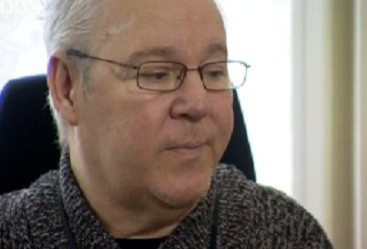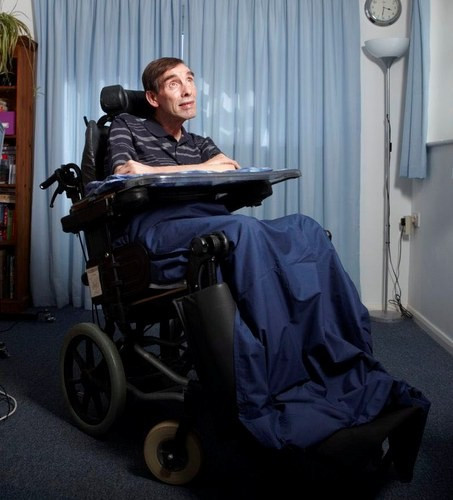Paul Lamb Becomes New Torchbearer in Right to Die Battle

Quadriplegic Paul Lamb is to take up the fight for the right to die previously pursued by Tony Nicklinson, who lost his High Court battle last August.
Lamb, who was previously only identified as 'patient L', waived his right to anonymity after the court of appeal ruled he could be part of the Nicklinson case.
His case, as well as a separate action launched by Nicklinson's widow Jane, will be heard in the court of appeal in May.
Lamb was paralysed from the neck down in a car crash 23 years ago and says he is in constant pain. He wants the legal right to end his life with the help of a doctor in the comfort of his own home.
According to the BBC, Lamb said in a statement to the court: "I am in pain every single hour of every single day. I have lived with these conditions for a lot of years and have given it my best shot.
"Now I feel worn out and I am genuinely fed up with my life. I feel I cannot and do not want to keep living. I feel trapped by the situation and have no way out. I spend my day sitting in my wheelchair. My daily routine is tedious, monotonous and pointless. I often go to bed at 5pm - such is the pointlessness of it all.
"I am fed up of going through the motions of life rather than living it. I feel enough is enough." He added that he wants to die in his own bed in a peaceful way, with dignity.
At present, assisted suicide is illegal in the UK. A bill that would allow carers to assist the death of terminally ill people was brought before the House of Lords in 2006 but it was rejected.

Nicklinson died a week after the court ruled he could not end his own life with the help of a doctor. He had suffered a stroke in 2005, leaving him with locked-in syndrome - he was aware and awake but could not communicate because he was paralysed.
In its ruling in August, Lord Justice Toulson said: "It is not for the court to decide whether the law about assisted dying should be changed and, if so, what safeguards should be put in place.
"Under our system of government these are matters for Parliament to decide."
The British Humanist Association, which is backing Nicklinson and Lamb's case, said: "Paul is 57, and was immobilised after a road accident in 1990. He says that in the past twenty-three years he has endured a life which is monotonous and painful, and that he no longer wants to live.
"Public attitudes are overwhelmingly in favour of a new approach on assisted dying: A poll conducted by YouGov in September last year found that 81 percent of UK adults support the notion of mentally competent individuals with incurable or terminal diseases who wish to end their lives receiving medical assistance to do so, without those assisting them facing prosecution."
Andrew Copson, BHA chief executive, added: "Paul Lamb is taking a courageous step in waiving his right to anonymity and we fully support him and his legal case. We want to establish the right to a doctor-assisted death for mentally competent adults who are suffering incurably, permanently incapacitated, or who have made a clear and informed decision to end their life but are unable to do so independently.
"In the absence of legislation on assisted dying, we have to establish the right to a doctor-assisted death through the courts but we also hope that Paul's case will help to stimulate public debate on this issue, and convince Parliament to listen to the massive majority opinion in this country and legalise assisted dying."
© Copyright IBTimes 2025. All rights reserved.




















